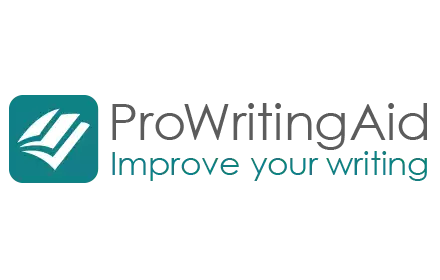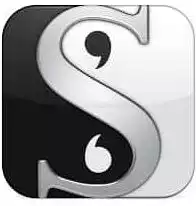In this article, you’ll discover the best academic writing software options based on their features, prices, and usability.
I remember spending countless hours in my University’s library, desperately trying to format my thesis correctly, surrounded by half-empty takeaway coffee cups. If only I had known that the right academic writing software could have helped me save time and improve the quality of my work.
Whether you’re a university student struggling to finish your thesis like I was or a researcher with deadlines looming, you can rest assured that the right academic writing software will take an enormous weight off your shoulders. What is academic writing? Read our guide to find out!
Academic writing requires meticulous attention to detail which is why we’ve scoured the web looking for software that will support you in the following areas:
- Grammar
- Spelling
- Plagiarism
- Concise sentences
- Readability improvements
- Chapter, footnotes, and bibliography automation
The academic software options in this article will help you unlock your true potential as an academic writer by improving your grammar, structure, style, and planning.
Contents
21 Best Free & Paid Academic Writing Software
1. Grammarly
Pricing: Free version available, Premium $12/month, Business $15/month
Use for: For plagiarism and grammar checks of academic writing
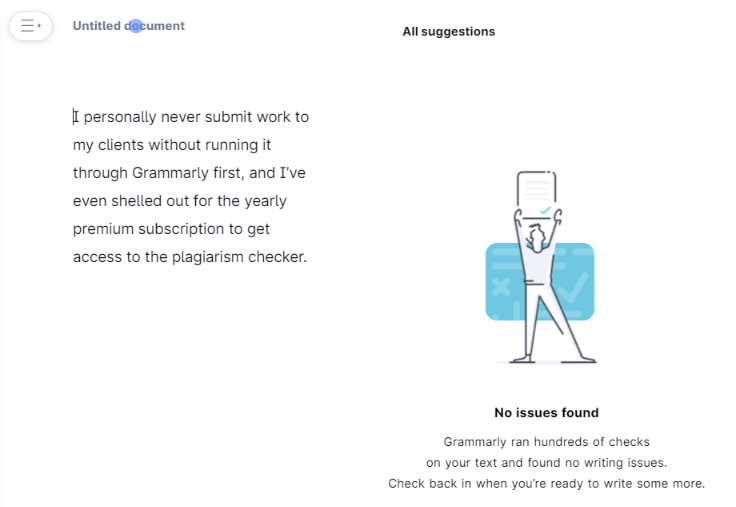
Grammarly is the most popular writing software on the market, and it’s being used by all types of writers, from high-school students to academic writers in top institutions and universities.
I personally never submit work to my clients without running it through Grammarly first, and I’ve even shelled out for the yearly premium subscription to get access to the plagiarism checker. To find out more, read our Grammarly review.
Some new students also wonder if it’s ok to use this tool to edit their essays and papers. It’s fine to use but if you need more context, in this article, our writer answers the question, is using Grammarly cheating?
We tested dozens of grammar checkers, and Grammarly is the best tool on the market today. It'll help you write and edit your work much faster. Grammarly provides a powerful AI writing assistant and plagiarism checker.
2. ProWritingAid
Pricing: Free version, $20/month, $79/year, $300/lifetime
Use for: As an alternative for grammar and plagiarism checkers of academic writing
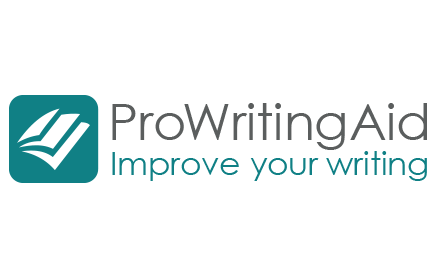
ProWritingAid is an affordable grammar checker that leverages artificial intelligence and a personal support system to help you improve your writing by pointing out specific areas of weakness.
ProWritingAid presents suggestions similarly to Grammarly through bold pop-up boxes that are easy to navigate. However, this software targets professionals looking to make fundamental changes to their writing style. To find out more, read our ProWritingAid review.
ProWritingAid is a powerful, accurate grammar checker and style editor. It's suitable for non-fiction and fiction writers and doesn't require a monthly subscription. Save 20% per month or year.
3. Scrivener
Price: 30-day free trial, student/academics discount $50, IOS $19.99, Standard macOS and Windows $58.99
Use for: For managing large academic papers, organizing research, and references
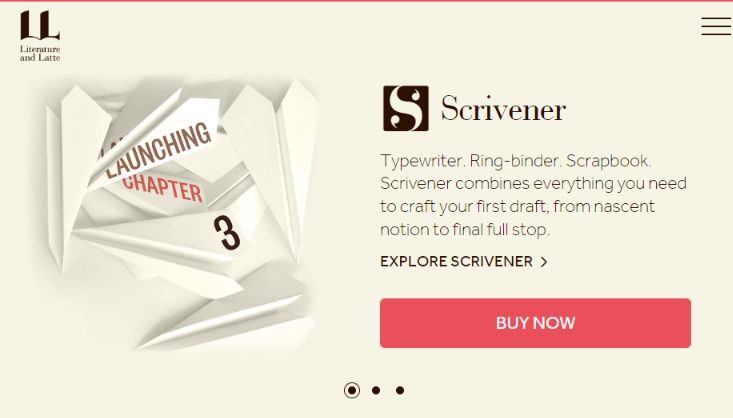
Scrivener may not be as well known as the last two software options, but it has much to offer academic writers. For example, the platform will help you get your references in order, and it will help you integrate large chunks of text into one, which is useful when you’re moving big paragraphs.
Although bloggers and journalists overlook Scrivener, if you’re someone who is dealing with long research papers, this could be the ideal software choice. To find out more, read our Scrivener review.
Scrivener is our go-to app for long-form writing projects. It's popular with best-selling novelists, screenwriters, non-fiction writers, students, academics, lawyers, journalists, translators and more.
4. Google Docs
Price: Free
Use for: General writing, collaborative writing, and editing
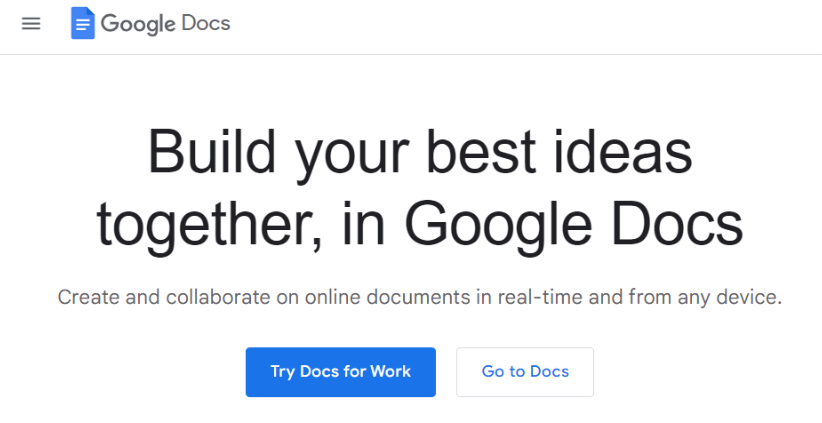
Google Docs is probably the most well-known writing software, and it’s used by professional writers, bloggers, and academics worldwide. I’m personally using Docs to write this post, as its sharing feature makes sending your work to an editor a breeze.
Docs offers many valuable features for academic writers, including headers and footers, collaborative comments, citations, and the new document comparison tool.
This platform is useful when combined with Grammarly, its spell checker, and writing tips are highlighted clearly in Google Docs, and you can accept and reject suggestions with one click.
5. LaTeX
Price: Free
Use for: For writing scientific papers

LaTex is a writing software designed to help people improve the structure of their academic papers. It’s worth noting that LaTeX doesn’t offer a spell-checking service, so you’ll want to use it in combination with Grammarly or ProWritingAid.
The software interface may not boast a high-quality-looking interface, but the underlying features are impressive, especially considering the software is free to use.
6. Papers
Price: 30-day free trial, $3/per month for students, $5/month for academics, $10/month for business
Use for: To manage, read, annotate, and share your research references
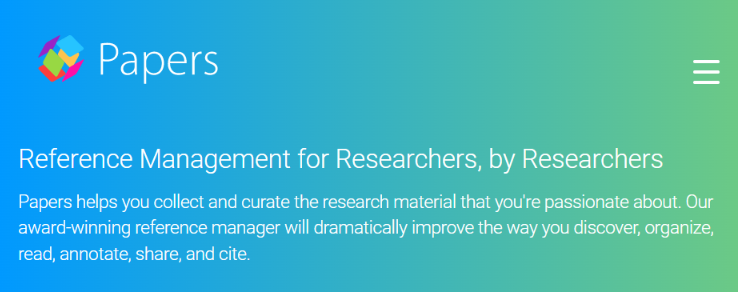
Papers help you gather your research materials across multiple devices, making your books, articles, and journals easy to access and organize.
If you’re writing a long research paper, manually collating all your references into one library would be extremely time-consuming. Papers automate the process, letting you focus on writing,
Although Papers isn’t a stand-alone academic writing software due to the lack of most expected features, it will be handy for academic writers struggling to organize their references and sources.
7. Zettlr
Price: Free
Use for: As a markdown editor and for organizing academic notes
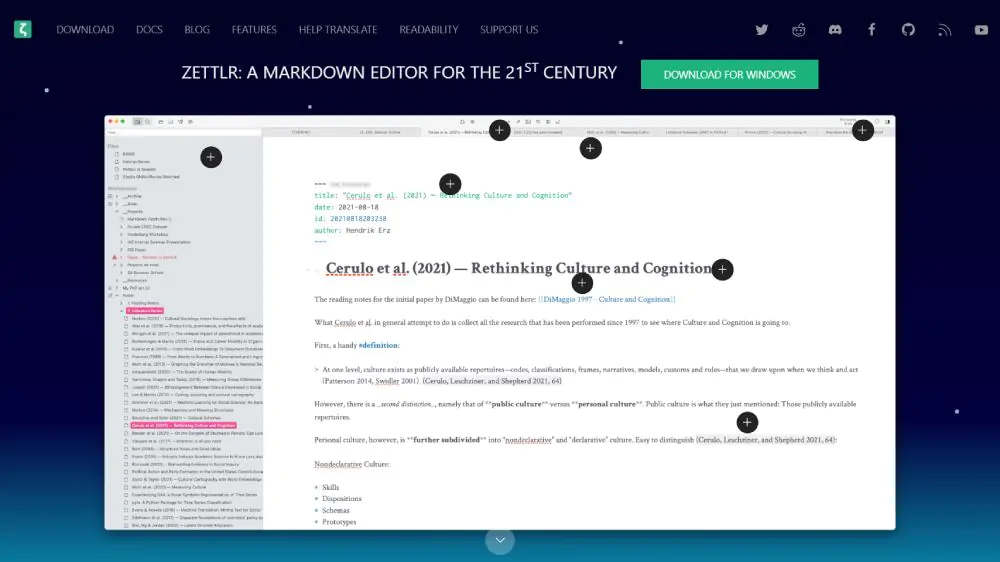
Zettlr is an open-source markdown editor software that lets you focus on your writing without worrying about making it HTML compatible manually. Zettlr is excellent for academic writers looking to include citations or export their work in multiple formats.
8. Ulysses
Price: $5.99/month or $39.99/year
Use for: Writing on IOS devices
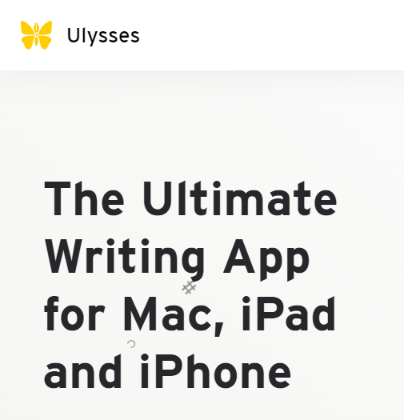
Ulysses is a writing software designed for use on Mac, iPad, and iPhone, so if you aren’t an Apple user, then this one isn’t for you.
Although academic papers are usually full of data, graphs, and charts, you sometimes need to focus on your text, which is where Ulysses can help. Ulysses is minimalist in design with a clutter-free interface, so if you’re someone that quickly gets distracted from writing, it could be a great option. It supports Markdown. You can also use it to prepare an academic paper for publication. To find out more, read our Ulysses review.
9. Obsidian
Price: Free, but you can make a one-time payment of $25 for special developer features and a yearly $50 for commercial use rights
Use for: Note taking and organizing
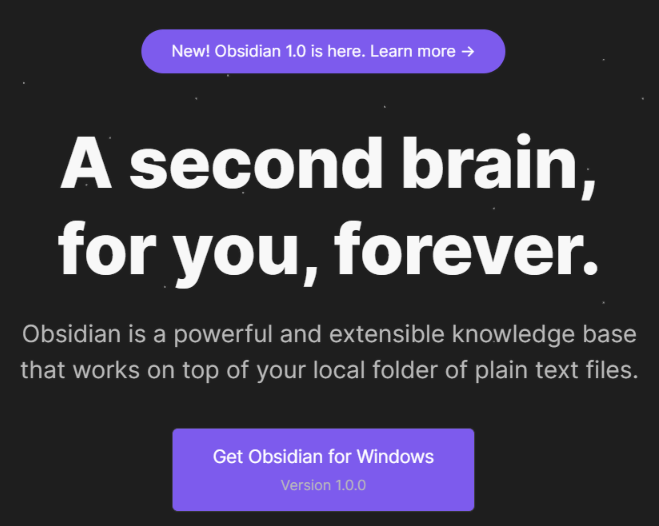
Obsidian is a note-taking and personal knowledge management tool for improving how research writers organize ideas and notes.
Academic writing often involves developing complex ideas and presenting them clearly. Obsidian can help you develop your theories by organizing your ideas and notes into mindmaps and information stacks.
Obsidian won’t be the standalone app you use as an academic writer, but it can help you develop ideas and connections within your papers. To find out more, read our Obsidian review.
10. Joplin
Price: Free
Use for: Organize your notes across various platforms
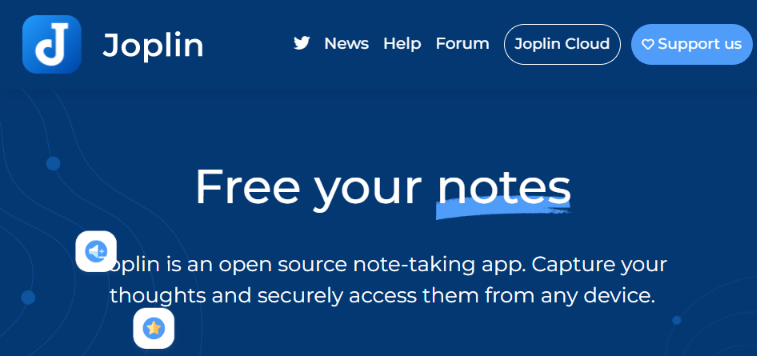
Joplin is an open-source note-taking software that operates across various devices and has a thriving community developing free tools to improve the platform. You can share your notes from Joplin across different platforms, and it runs on Windows, macOS, Linux, iOS, and Android.
For academic writers, Joplin offers a space to collect web clippings and notes from online sources and access them from multiple devices.
11. Microsoft Word
Price: $6.99/Month
Use for: General writing, editing, and note-taking
Microsoft Word is one of the most widely used word-processing applications for academic writing. Known for its user-friendly interface, it offers various formatting options and tools. It has an inbuilt spell checker, dozens of fonts, and various formatting options.
It’s a fairly general writing tool that lacks some of the more specialized features of some of those mentioned in this article. Nonetheless, Word is a tried and tested writing companion you should consider using with a good referencing software from this list.
12. Zotero
Price: Free
Use for: Organizing references
Zotero is an open-source reference management software ideal for anyone struggling to keep their bibliography neatly ordered. If you’re writing a lengthy academic paper and haven’t settled on a referencing software, Zotero is worth a try, especially as it’s free.
If you’re working on a group project, Zotero’s collaborative features are helpful when organizing citations in various formats, including Chicago and APA. Naturally, as this is citation software, you’ll want to combine it with a writing platform such as Docs or Word.
13. Mendeley
Price: Free with optional premium plan
Use for: Researching and referencing
Mendely is a free-to-use reference management tool that PhD students created. You can tell from the software that the people who created it had wasted hours manually referencing and wanted a more streamlined and efficient way to add citations to their papers.
The Mendeley Library has millions of papers and can be easily browsed from tablet, PC, and mobile. Combining it with a reference management tool will help you organize your research.
14. EndNote
Price: $269.95/Full License
Use for: Referencing, annotating, and journal matching
EndNote is a premium academic research and writing software that is a market leader in providing reference management, citations, and bibliography creation. The premium price tag might be worth swallowing if you’re a serious academic writer.
EndNote can help you match your research papers with potentially compatible journals via its Manuscript Match tool. This software is easy to integrate with popular writing software like Google Docs and makes reading and annotating PDFs very easy, even on your phone.
15. Citavi
Price: Free trial or $1000
Use for: Collaborative reference management and writing
Citavi is an academic writing and reference management tool. The software combines a seamless collaborative writing experience with an automatic citation tool with over 10,000 styles.
The software automatically links citations, creates a bibliography, and allows you to export directly to Microsoft Word. The software is impressive and has received great reviews, but the price tag naturally means most people will probably settle for something cheaper.
16. Turnitin
Price: Free
Use for: Plagiarism checker
Turnitin is a plagiarism detection tool that anyone writing research papers should consider using. Most major research institutions use Turnitin to ensure they don’t publish plagiarized work.
The software is easy to use and rates the uniqueness of academic rating based on its massive pool of papers. Turnitin doesn’t just give a yes or no answer. It points out sections of your work that may be plagiarized and links them to citations of the work that appears to be being copied.
17. Copyscape
Price: Free version or pay per word
Use for: Plagiarism checker
Copyscape is a plagiarism checker designed for online content creators and anyone who runs a blog or a website. Although it’s probably less helpful for academics than Turnitin, it’s still worth mentioning, as it can help academics in the early stages of research that involves collecting information from sources other than official journals.
The software is straightforward to use as it is a simple copy-and-paste system. There is a limited free version, but even the premium per-word rate is very reasonable.
18. ChatGPT
Price: Free version or $20/month
Use for: AI-enhanced writing, editing, and researching
ChatGPT has been the most talked about technological innovation this year. Its impact on the world of research and writing is still evolving, and the model is still developing. It’s a fantastic tool for researching if you’re willing to spend a few hours learning how to create effective prompts.
ChatGPT can rapidly search the web for content published before 2021 and present it concisely. Regardless of the topic you’re researching, this software is going to be able to help you research and write more efficiently.
If you want an in-depth review of ChatGPT and how you can use it to become a better academic writer, check out our ChatGPT review.
19. Ginger
Price: Free version or $4.99/month
Use for: Spelling and Grammar
Ginger is a spelling and grammar software that offers an interesting alternative to Grammarly. This software is compatible with most popular writing platforms and goes beyond basic grammar and spelling checks.
Ginger offers unlimited rephrasing suggestions and can translate documents into dozens of languages. In addition, they’ve managed to undercut Grammarly’s prices, so this could be worth a try if you feel Grammarly is too expensive.
20. Authorea
Price: Free version available
Use for: Writing and publishing
Authorea is a collaborative writing tool designed for researchers working in small teams. Importantly, Authorea goes beyond just helping you write by offering several tools that help researchers publish their papers once it’s completed. Beyond the basic collaborative writing features you may expect, it also offers automatic citation formatting even when multiple people are editing one document.
The software can automatically format research papers to suit 40 of the biggest publishers in the world. The free version is fairly comprehensive, but frustratingly, it’s unclear how much they charge for the premium service, as the price has to be negotiated directly via email with the team. It appears to vary depending on the insulation you work for and the size of your team.
21. Trinka
Price: Free version available
Use for: Specialized academic spelling and grammar checker
Trinka is an AI-powered technical writing grammar and plagiarism checker. This is essentially a more technical version of Grammarly that’s been designed specially to help academic writers. It can help you create a more formal tone, introduce technical terms, and even have the option to focus suggestions on specific scientific areas such as medicine, chemistry, and physics.
In addition, it has a publication feature that can help you get your paper into the format required by most publishers. If you’ve been using Grammarly as an academic writer but feel that its suggestions are too general, then Trinka could be a great alternative.
Conclusion
If you need a good grammar checker, Grammarly is our top choice due to its accuracy and speed. Scrivener excels at managing long-form papers, but Ulysses is easier to use. Obsidian is great for managing research as it Papers.
Why Should You Trust Me?
My work as a journalist has been published in major news outlets such as The Daily Mirror, Newsweek, Zenger, and Yahoo. In a hectic newsroom, there’s no time to waste, and mistakes are rarely forgiven, so I’ve spent hundreds of hours using writing software to guarantee accuracy and clarity in my copy.
In my opinion, you can make the best use of academic writing software by combining different options based on their individual strengths. I recommend using Google Docs if you collaborate with a team combined with Grammarly or ProWritingAid for spelling and plagiarism and then adding something like Papers to help organize your sources.
Our Testing Criteria
We update this roundup of the best academic writing tools regularly. We test key features by checking MS Word documents, blog posts, essays, articles and even book chapters.
These writing samples range from several hundred to several thousand words. Typically, we use the web, desktop and browser apps and plugins, factoring in price, ease of use, and functionality. We’ve reviewed many of these tools individually and included links to those reviews.
FAQs About The Best Academic Writing Software
Is Grammarly good for academic writing?
Grammarly is useful for checking academic writing for grammar and spelling mistakes. It can also help academic writers improve the readability of their reports or papers. However, Grammarly isn’t meant to function as a tool for planning and writing academic papers. For that use, a traditional word processor or a dedicated academic writing app.

